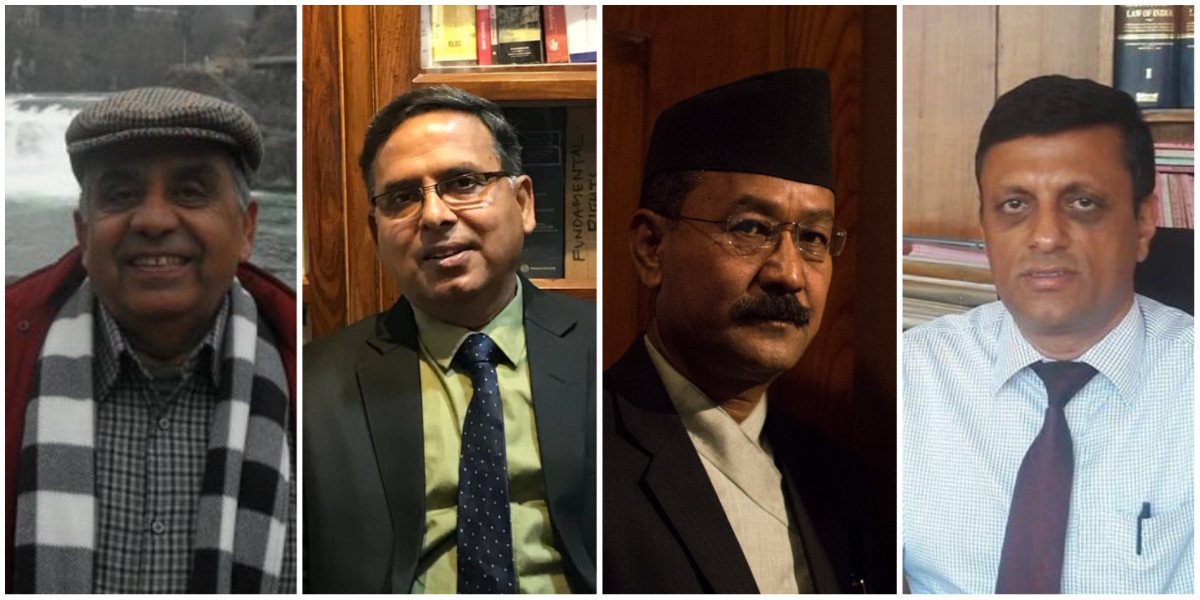There is confusion about whether the House of Representatives (HoR) will remain after the announcement of general election on Thursday.
“Except when dissolved earlier, the term of House of Representatives shall be five years,” Article 85 of the Constitution states.
Political parties and constitutional experts are divided as to whether announcement of election date should be considered as expiry of the five-year term or not. Article 91 of the Constitution states that the speaker and deputy speaker shall continue in office until the date of filing nominations for election to the HoR.
Talking with reporters on July 17 Speaker Agni Sapkota has already said that there is an understanding that the HoR will remain until the day of filing nominations.
HoR Member from CPN-UML and senior advocate Krishna Bhakta Pokharel says the HoR will remain until the day of filing nominations pointing that the local elected representatives also remained in position until the day of filing nominations in the recent local election.
Senior advocate Tikaram Bhattarai concurs. “HoR will remain. But that House cannot formulate laws of long-term significance,” he states referring to the provision of lame duck president in America after a successor has been elected during the period of transition of power. “Our HoR will also become lame duck House.”
He adds that such lame duck House can act only if an emergency has to be imposed following external attack or natural disaster. He, however, adds that the lame duck House can move forward the works that have already entered the House.
HoR Secretary Gopal Nath Yogi points how the Second Constituent Assembly that was transformed into House after promulgation of Constitution in 2015 had continued to function even after the date of election was announced five years back.
Those who believe that the HoR will remain until the day of filing nominations also point at Article 296 of the Constitution to back their arguments. “After the commencement of this constitution, the Constituent Assembly shall be transformed into a Legislature-parliament, and the term of such Legislature[1]Parliament shall be up to 21 January, 2018 A.D. Provided that, if the elections for the House of Representatives are to happen pursuant to this Constitution, the term of the transformed Legislature[1]parliament shall be until one day before the nominations are filed for the elections of House of Representatives,” reads Article 296(1) of the Constitution.
Constitutional expert Purna Man Shakya, on the other hand, points that the Constitution does not speak clearly about the term of HoR and recommends to start a practice of announcing election around a month before or after the expiry of five years as elections cannot be held throughout the year in Nepal due to weather conditions and festivals. He opines that the term of HoR members should expire after announcement of election date pointing that election can only be held for vacant positions.
Former speaker Daman Nath Dhungana states that the posts of speaker and deputy speaker will remain until the day of filing nominations, the government will remain until the new one is formed but the House will not remain after announcement of election date.
Another constitutional expert Bipin Adhikari stresses that the term of House expiring after announcement of election date is a simple principle of the parliamentary system. “Some are pointing at the intention of the Supreme Court. But the Supreme Court has only spoken on disputed issues until now. It has only spoken about House dissolution but has never spoken on the issue of announcing election date. No cases have been filed in Nepal even when the HoR has been dissolved in Nepal before holding general election.
“What we see is the acts of announcing election date by the prime minister and dissolving the HoR are things that are done simultaneously. There is no practice of going for elections keeping the HoR in place. The government that holds election is caretaker and the caretaker government does not need the House.”
He stresses that the HoR cannot be kept in existence until the day of filing nominations. “The objective of the Constitution is to provide similar status to all the political candidates. Someone may be in power but only in capacity of caretaker. Election should be contested at equal footing and those winning will govern.”
He argues that fair election cannot be held when current lawmakers contest the election without ending the HoR as the current lawmakers enter the field continuing with their remunerations, vehicles, security persons and other facilities.
He also points that other questions will be raised if election is announced keeping the HoR alive. “Can the caretaker government that announces election date be changed by the HoR in a parliamentary system?” he asks and then answers himself, “That does not happen. People have made the constitution a document for give and take.”
He states that the parties also have other interests to go for election keeping the House alive apart from the issue of its lawmakers getting remunerations and other facilities for a few extra months. “CPN (Maoist Center) and CPN (Unified Socialist) now feel they can stop the PM avoid the electoral alliance if the House is kept alive. But that will make the House lame. They no longer adhere to constitutionalism. The Constitution is the blueprint of our systems. There will be weaknesses if we look only at the Constitution abandoning the systems,” he adds acknowledging lack of clarity about term of HoR. “The parliamentary culture will become clear, and the provisions of Constitution can be interpreted only when we keep the blueprint and the systems together.”

